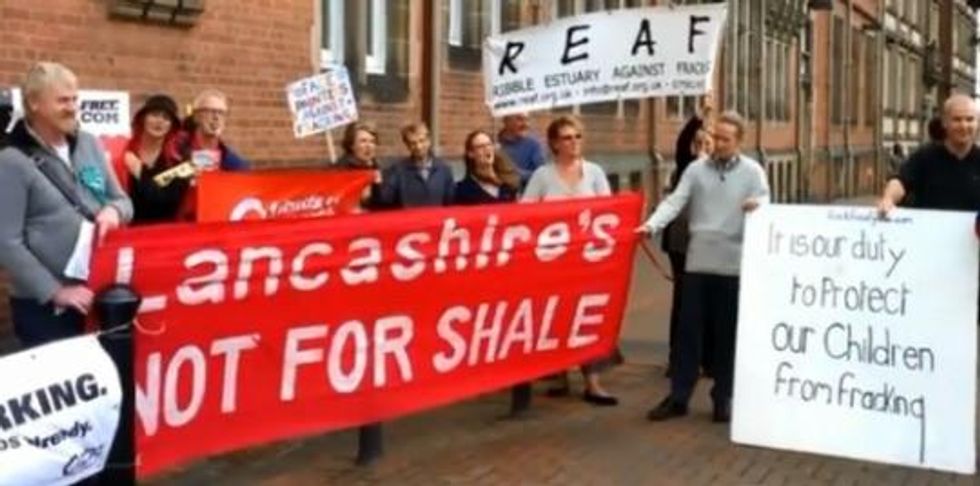Anti-fracking campaigners in the UK are enjoying at least a temporary victory on Friday following news that energy company Cuadrilla was pulling out of a shale gas site in Lancashire.
Cuadrilla, which the Guardiannotes is "the UK's only company engaged in fracking," cited "technical constraints related to wintering birds" as the reason behind its leaving the fracking site.
Cuadrilla has been the target of sustained protests, with thousands of anti-fracking campaigners shutting down the company's headquarters, their PR company and their drill site in Balcombe in August.
Environmental groups gave a cautious welcome to the news, warning that the mission to stop fracking was far from over.
"We're pleased they've pulled out but we want them to pull out of all of Lancashire because of the huge threat to the environment," stated Helen Rimmer, Friends of the Earth's North West campaigner. "They've obviously felt the pressure of the local opposition and know they're not welcome."
Harry Huyton from the Royal Society for the Protection of Birds said that "It is promising news that Cuadrilla has taken wildlife into account in this case, but in the long term there must be a statutory obligation of drilling firms to assess the impact any proposal will have on birds and other species."
Defend Lytham, a group that opposes fracking, doubts that the company's real reason behind pulling out of the fracking site is for the protection of birds, and wrote that
It is worth noting that the site was very visible and close to local population centres in Lytham and St Annes, and so it could easily have become a focal point for protests of the type we saw taking place in Balcombe.
It comes as no surprise to us that they have decided to cut their losses and discontinue operations there.
Defend Lytham have always maintained that the site is totally inappropriate for a shale gas development given its proximity to housing and the inadequacy of the local infrastructure. We would point out though that with over 100 well pads needed to produce the volumes of gas claimed, every site developed will inevitably be near a populated area. This is just one skirmish [in] what may well prove to be a long war.
Cuadrilla's chief executive, Francis Egan, told the UK paper Blackpool Gazette that his company remained committed to fracking and its goal of extracting gas off the Fylde coast in western Lancashire.
_____________________

